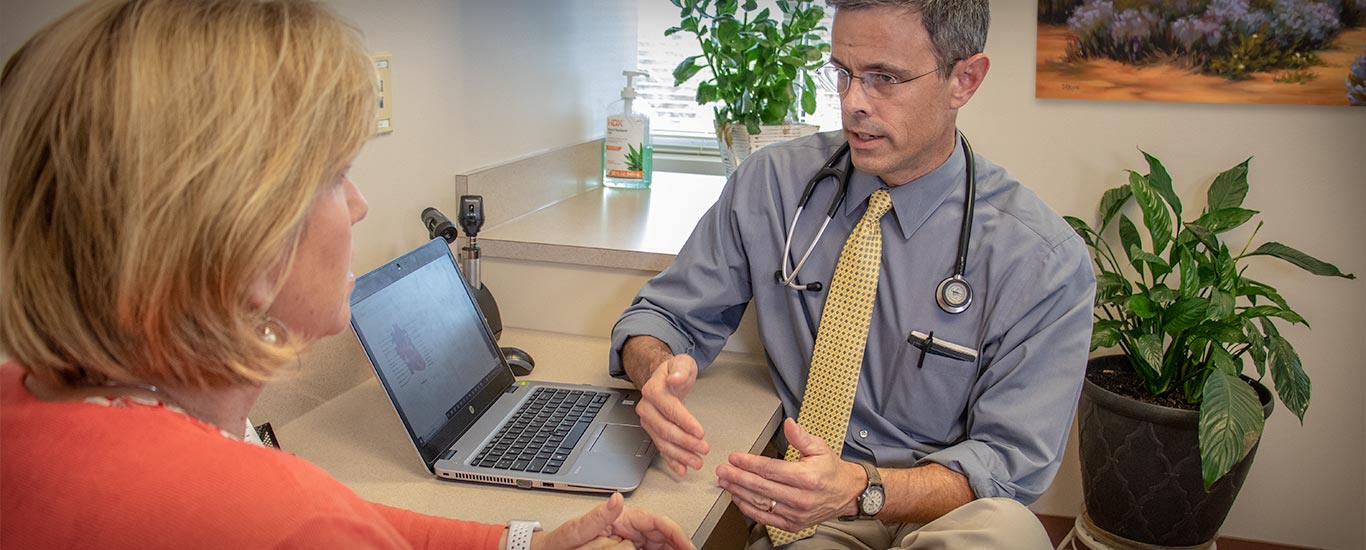
Cuts and Small Lacerations
Cuts and small lacerations occur as a result of a sharp edge cutting the skin or from a blunt force tearing the skin. When facing a cut or small laceration, you may wonder if you should see your primary care doctor in Raleigh. To help you determine if you need to see a provider for your wound, consider the following:
- Does your cut appear to be deeper than a fourth of an inch?
- Are you unable to control the bleeding within 10 minutes?
- Is the cut on your face, near your mouth or eyes?
If you answered yes to any of these questions, it is important to contact us right away to receive proper treatment. We’ll also help you determine if your cut requires stitches to help avoid potential infections, promote faster healing, and reduce scarring.
Types of Cuts and Small Lacerations
The terms cuts and small lacerations can be used interchangeably. Both terms refer to an opening or break in the skin. Larger lacerations and cuts are often referred to as gashes; whereas deeper wounds caused by nails or animal bites are referred to as punctures.
Cuts and small lacerations can be smooth or jagged and vary in depth. Some are deep enough to affect your tendons, muscles, nerves, bone and blood vessels.
Treatment
When treating a cut or small laceration it’s important to stop the bleeding as quickly as possible. First, wash your hands with soap and warm water to prevent infection. Next, wash the wound with soap and water. Gently pat the wound area with a dry clean bandage or cloth then apply light pressure to the wound to promote clotting. Once the bleeding has stopped, apply antiseptic cream or ointment to your wound to prevent infection and cover the wound with a non-stick bandage. Change the bandaging at least once a day and keep your wound dry as it heals.
If your cut, laceration or puncture wound is caused by an object that has come into contact with soil, manure or dust you may have been exposed to a bacteria called Clostridium tetani, which can cause a tetanus infection. Though rare now because of vaccination, tetanus is a dangerous infection that can be life threatening.
If you have not received a tetanus shot within five years, we recommend that you schedule a visit promptly with your primary care provider in Raleigh to make sure you are protected.
Do You Need Stitches or Bandages?
Cuts and lacerations are generally treated with a bandage. However, cuts that are deep, gaping open, or have ragged edges are those that are typically closed with stitches or staples by an experienced primary care doctor.
Determining if you need stitches is best assessed by seeing your primary care doctor in Raleigh. Wounds that naturally come together and have minimal bleeding and are less than three-quarters of an inch in width and one-quarter inch in depth are the best candidates for bandaging.
Wounds Caused By Animals
Millions of animal bites occur in the United States each year. Dogs cause most animal bites. However, humans also suffer animal bites from cats, rodents, rabbits, ferrets, farm animals, monkeys and reptiles.
The major concern of all animal bites is infection and contracting the rabies virus. When an animal bites you, bacteria and viruses from its mouth can enter the wound and begin growing. This bacteria can cause an infection and potentially lead to other life-threatening complications. The seriousness of a bite depends on the location, type of animal, and whether the animal’s teeth punctured your skin.
If your wound is caused by an animal and you are unaware of the animal’s past medical history, such as when it last received a rabies vaccine, see your primary care doctor in Raleigh right away.
Let Us Keep Watch Over Your Health
Anytime your skin is broken, you run the risk of an infection. Your body’s white blood cells are your first line of defense against infection. An infection happens if there are too many germs for your white blood cells to fight off. Typical signs of an infection include:
- increased pain at the wound site
- swelling and/or inflammation
- your wound develops a bad odor
- expanding redness or red streaking from the wound
- pus or drainage
- tenderness
- fever
Keeping watch over your health is part of Sentinel Primary Care’s commitment to providing top-notch primary care in Raleigh. If you have a cut or small laceration that becomes infected or if you are unsure if you need stitches, give us a call and let’s get your injury cared for properly.
As one of the best primary care doctors in Raleigh, we will make it our top priority to care for your wound. While some cuts and lacerations can be treated via a virtual office visit, if you have suffered an animal bite or if your wound has been exposed to any other sort of bacteria, we recommend that you schedule an in-office visit immediately to ensure proper care.


